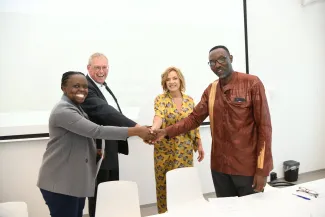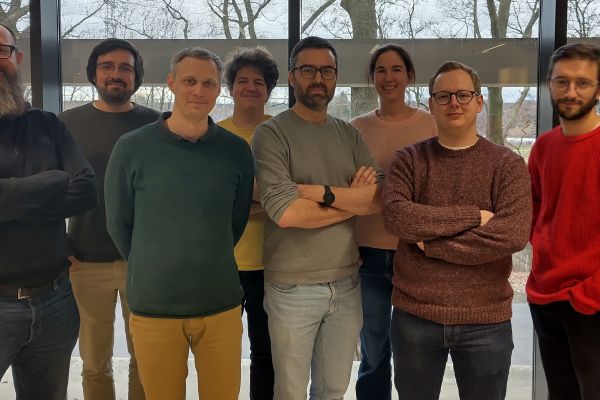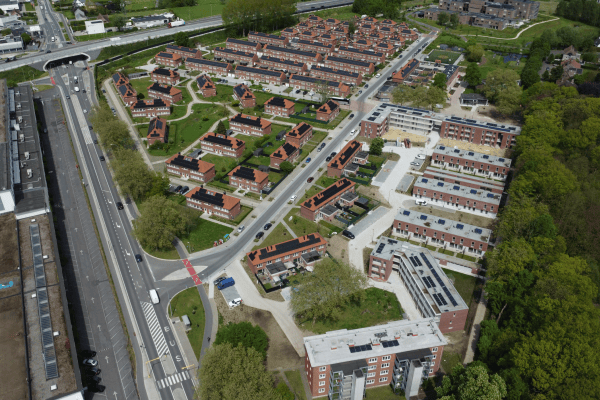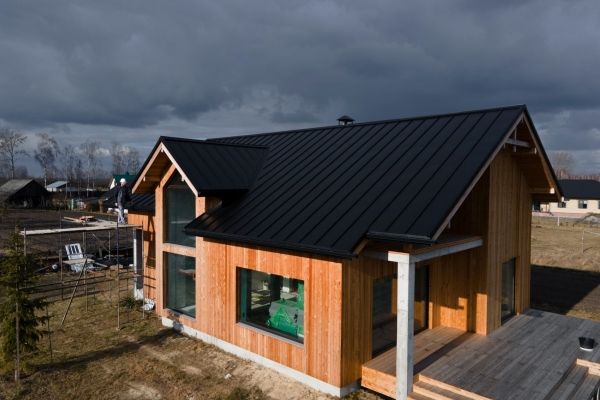VITO/EnergyVille and NIRDA/CPCIC boost circular construction in Rwanda
Today VITO/EnergyVille signs a Memorandum of Understanding for cooperation with NIRDA, the National Industrial Research and Development Agency, and CPCIC, the Cleaner Production and Climate Innovation Center in Rwanda. The goal is to work even more intensively with the East African country, which has a strong interest in circular construction. A VITO/EnergyVille pilot project on circularity in the Rwandan construction sector is already up and running, and this collaboration will further strengthen ties.

In Rwanda, the population will roughly double by 2050. This represents a major urbanization challenge, adding to the need for sustainable solutions. Moreover, the country wants to reduce imports of building materials from abroad in favor of domestic raw materials. By immediately adopting the latest innovations rather than going through a steady learning curve, the country will make its rapidly growing construction sector and economy more sustainable.
This is where circular economy measures can help. Also, the circular economy concept fits well with local policies that place economic diversification and industrialization high on Rwanda’s and Africa’s political agenda. It also provides a paradigm for the development of new economic activities that can ultimately lead to the creation of new jobs, while simultaneously addressing a number of pressing environmental and social issues.
A pilot project by VITO/EnergyVille commissioned by Enabel, the development agency of the Belgian federal government, on circularity in the construction sector is already ongoing in Rwanda, targeting producers of building materials. The goal is to see how circularity can be integrated throughout the value chain of their products. During an incubation track, ten local producers of building materials are coached by VITO/EnergyVille in collaboration with Entrepreneurs for Entrepreneurs.
During the trajectory, the companies receive circularity advice regarding their current business operations. This is done through commercial scans, circularity scans and life cycle analyses. The ten participating companies are closely monitored and at the end of the trajectory each receives an individual final report and an action plan for the near future. The experiences are also incorporated into guidelines for Rwandan policy makers. In this way, both the construction sector and the government can move forward with the transition to circular business.
The Memorandum of Understanding signed today demonstrates the willingness of both parties to share knowledge and to work closely together. The purpose of the collaboration between the parties is to establish a strategic relationship with the goal of increasing the level of sustainability and circularity in the built environment and construction sector in Rwanda through industrial research, technology mapping and development, interventions, and replications. If needed, other EnergyVille partners will also be able to contribute to this strategic relationship.
Carolin Spirinckx, Project Manager at VITO/EnergyVille, says: “The pilot project, which we are currently implementing together with Entrepreneurs for Entrepreneurs on behalf of Enabel, is a great example of how we can put our vision and mission on circularity and sustainability into practice and thereby enhance sustainable entrepreneurship within the construction sector in Rwanda. This will only be strengthened by the cooperation between VITO/EnergyVille and NIRDA/CPCIC in the coming years.
The future collaboration will focus on joint project proposals for additional research, publications for academic outreach and wider dissemination, capacity building, knowledge sharing and management, and the further development of business relationships between Belgian and Rwandan industrial and public actors in the construction sector. We are therefore delighted that the collaboration is taking further shape with this signing.”












